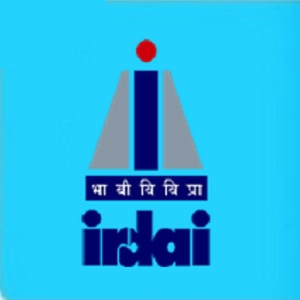Dear Aspirants,
Welcome to Insurance Awareness Questions in AffairsCloud.com. Here we are covering some important Insurance Awareness Questions & Answers with Explanations. Do study this questions thoroughly as it may prove to be helpful in upcoming exams and also in interviews.
- An agreement between an insurance company and an agent, granting the agent authority to write insurance from that company is called ________
A. Affirmative Warranty
B. Aggregate Limits
C. Aleatory contract
D. All-Risk AgreementA. Affirmative Warranty
Explanation:
An affirmative warranty is a statement regarding a fact at the time the contract was made. - Once an insurance company has paid up to the limit, it will pay no more during that year is known as _______
A. Affirmative Warranty
B. Aggregate Limits
C. Aleatory contract
D. All-Risk AgreementB. Aggregate Limits
Explanation:
An aggregate limit is the maximum dollar amount your insurer will pay to settle your claims. - _______ is legal contract in which the outcome depends on an uncertain event.
A. Affirmative Warranty
B. Aggregate Limits
C. Aleatory contract
D. All-Risk AgreementC. Aleatory contract
Explanation:
An aleatory contract is a contract in which the performance of one or both parties is contingent upon the occurrence of a particular event. - A property or liability insurance contract in which all risks of loss are covered is called _______
A. Affirmative Warranty
B. Aggregate Limits
C. Aleatory contract
D. All-Risk AgreementD. All-Risk Agreement
Explanation:
A property or liability insurance contract in which all risks of loss are covered except those specifically excluded. - The party to whom the rights of the insured under a policy are transferred is known as _______
A. Policyholder
B. Appointee
C. Assignee
D. AgentC. Assignee
Explanation:
A person to whom a right or liability is legally transferred. - A clause that allows the transfer of rights under a policy from one person to another, usually by means of a written document is called _____
A. Assignment
B. Automatic Treaty
C. Arbitration
D. AppraisalA. Assignment
Explanation:
Assignment is the means by which a life insurance policy holder can transfer rights of the policy to the assignee, in accordance with some terms and conditions. - A contract, such as an insurance contract, requiring that certain acts be performed if recovery is to be made is known as _______
A. Conditional Contract
B. Conditional Receipt
C. Conditional Renewable
D. Consequential lossA. Conditional Contract
Explanation:
A conditional contract is an agreement or contract conditional upon a specific event, the occurrence of which, at the date of the agreement, is uncertain. - A document given to an applicant for life insurance stating that the company’s acceptance is contingent upon determination of the applicant’s insurability is known as _______
A. Conditional Contract
B. Conditional Receipt
C. Conditional Renewable
D. Consequential lossB. Conditional Receipt
Explanation:
A receipt involved in life, health and certain property insurance contracts; if the insured is deemed to be covered by the insurer, the coverage begins on the date the insured receives the conditional binding receipt. - A policy that can be cancelled or have the premiums raised by the insurer on a specific anniversary date, subject to certain reasons written into the policy is known as ________
A. Conditional Contract
B. Conditional Receipt
C. Conditional Renewable
D. Consequential lossC. Conditional Renewable
Explanation:
A contract of health insurance stating that the policy is renewable under certain conditions as defined in the contract. - Losses other than property damage that occur as a result of physical loss to a business for example, the cost of maintaining key employees to help reorganize after a fire is called ________
A. Conditional Contract
B. Conditional Receipt
C. Conditional Renewable
D. Consequential lossD. Consequential loss
Explanation:
Consequential loss is considered an indirect loss as compared to losses from the direct damage.
Click Here To View Insurance Awareness Questions
AffairsCloud Recommends Oliveboard Mock Test
AffairsCloud Ebook - Support Us to Grow
Govt Jobs by Category
Bank Jobs Notification




